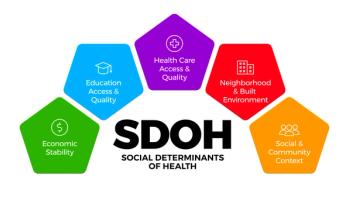
An ongoing, phase 3, open-label study demonstrated the efficacy of exagamglogene autotemcel (exa-cel) infusion to promote transfusion dependence in patients with transfusion-dependent β-thalassemia (TDT).

An ongoing, phase 3, open-label study demonstrated the efficacy of exagamglogene autotemcel (exa-cel) infusion to promote transfusion dependence in patients with transfusion-dependent β-thalassemia (TDT).

Kathy Zackowski, PhD, National MS Society, expresses the inherent value of quality rehabilitation trials for broadening clinical understandings of multiple sclerosis (MS) and bettering patient outcomes.

A retrospective analysis out of Denmark could not find a causal relationship to explain trends in melanoma incidence and mortality rates, demonstrating the need for more research in this area.

Yael Mauer, MD, MPH, discusses the patient population who benefits most from interventions with glucagon-like peptide-1 (GLP-1) therapies and explores the underlying mechanisms at work.

A large cohort study demonstrated the validity and reliability of single-channel electro-oculography (EOG) for sleep-stage classification.

Stacey Ehrenberg, MD, discusses the lacking data and potential implications of using glucagon-like peptide-1 (GLP-1) receptor agonists during pregnancy for patients with diabetes and/or obesity.

Dalia Rotstein, MD, MPH, emphazises the importance of awareness that multiple sclerosis (MS) impacts patients from various backgrounds as clinicians think through ways to improve access to care and research efforts in MS.

Diana Isaacs, PharmD, chair of a recent Institute for Value-Based Medicine® event hosted in conjunction with Cleveland Clinic, details the up-and-coming therapies impacting the scope of treatment in diabetes, obesity, and cardiometabolic health, as well as their associated challenges.

Robert Zimmerman, MD, discussed the adverse side effects associated with glucagon-like peptide-1 (GLP1) and multi-agonist therapies, as well as explored the challenges in developing these interventions.

At the Academy of Managed Care Pharmacy (AMCP) 2024 annual meeting, multiple poster presentations concerned with health equity, data collection, glucagon-like peptide-1 agonists, and more were acknowledged for their originality, relevance, clarity, bias, and quality.

Douglas M. Long, BA, MBA, was featured as the keynote speaker on the closing day of The Academy of Managed Care Pharmacy 2024 annual meeting, with a session dedicated to surveying the health care and pharmaceutical trends of the last year.

The Academy of Managed Care Pharmacy (AMCP) 2024 annual meeting included multiple poster presentations featuring studies on atopic dermatitis, 2 of which focused on the impact of ruxolitinib cream monotherapy and educating managed care professionals.

At the Academy of Managed Care Pharmacy (AMCP) 2024 annual meeting, a panel of presenters explored changes coming to Medicare that incorporate social determinants of health (SDOH) data to improve patient and health system outcomes.

Presenters at the Academy of Managed Care Pharmacy (AMCP) 2024 annual meeting discussed the current promise and future potential of gene and cell therapies, as well as payer management strategies for these costly treatments.

Presenters from Mayo Clinic discussed the benefits of implementing pharmacogenomic testing in mental health care for the betterment of patient outcomes, reducing medical costs, and more at the Academy of Managed Care Pharmacy (AMCP) 2024 annual meeting.

Presenters explored the real-world evidence in support of biosimilars at the Academy of Managed Care Pharmacy 2024 annual meeting.

Kevin Malloy, PharmD, BCPS, BC-ADM, CDCES, Cleveland Clinic, discusses how GLP-1 receptor agonists have evolved in the treatment landscape of diabetes and obesity at an Institute for Value-Based Medicine® event hosted in conjunction with Cleveland Clinic.

Michael Farwell, MD, associate professor of radiology at the Hospital of the University of Pennsylvania, provides insights into a study on the benefits of using 18F-fluorodeoxyglucose (FDG) PET/CT imaging to detect metabolic tumor changes in skin cancer.

Ari Green, MD, University of California, San Francisco, discusses the promising results observed in current remyelination trials in multiple sclerosis (MS) and the patient-specific features that may influence therapy outcomes.

A small, double-blind study has revealed the promise of the BAY2586116 nasal spray to help manage severe forms of obstructive sleep apnea and lower an individual’s morning blood pressure.

A retrospective cohort study assessed patterns of opioid use in children with sickle cell disease (SCD) following their initial opioid prescription for pain management, finding that concerning patterns of opioid abuse did not develop.

A prospective study evaluating the efficacy of an artificial intelligence (AI)–based clinical support system further demonstrated the reliability of AI or machine learning as a diagnostic tool in skin cancer.

A retrospective study analyzing tissue assays from patients with cutaneous melanoma demonstrated the promise of yes-associated protein (YAP) as a predictive biomarker for melanoma prognosis.

A cluster analysis demonstrated the potential for the Multiple Sleep Latency Test (MSLT) to aid in the diagnosis of central hypersomnia and distinguish between idiopathic hypersomnia subgroups.

A retrospective study reveals that measures of cognitive function, specifically processing speeds, decline in individuals with sickle cell disease as they grow older.

The first-in-class oral factor D inhibitor danicopan (Voydeya) has been approved for the management of extravascular hemolysis in patients with paroxysmal nocturnal hemoglobinuria (PNH).

Part 1 of a 3-part feature series on the history, evolution, and current state of LGBTQ+ health care is focused on the unique needs and journey of transgender patients in the US health system, as well as the policies and social influences that have shaped their access to care.

A cross-sectional study utilizing self-reports from Chinese college students correlated mobile phone use with insomnia, bolstering previous research that made similar conclusions.

An artificial intelligence (AI) mode was more accurate in assessing patient risks for skin cancer through the analysis of 2D facial images compared with more traditional risk-factor screening.

A population-based cohort study out of Norway has found that older men have a higher risk of developing second primary invasive melanoma following an initial primary melanoma, suggesting the benefits of increased surveillance in these patients.

259 Prospect Plains Rd, Bldg H
Cranbury, NJ 08512
© 2025 MJH Life Sciences®
All rights reserved.
